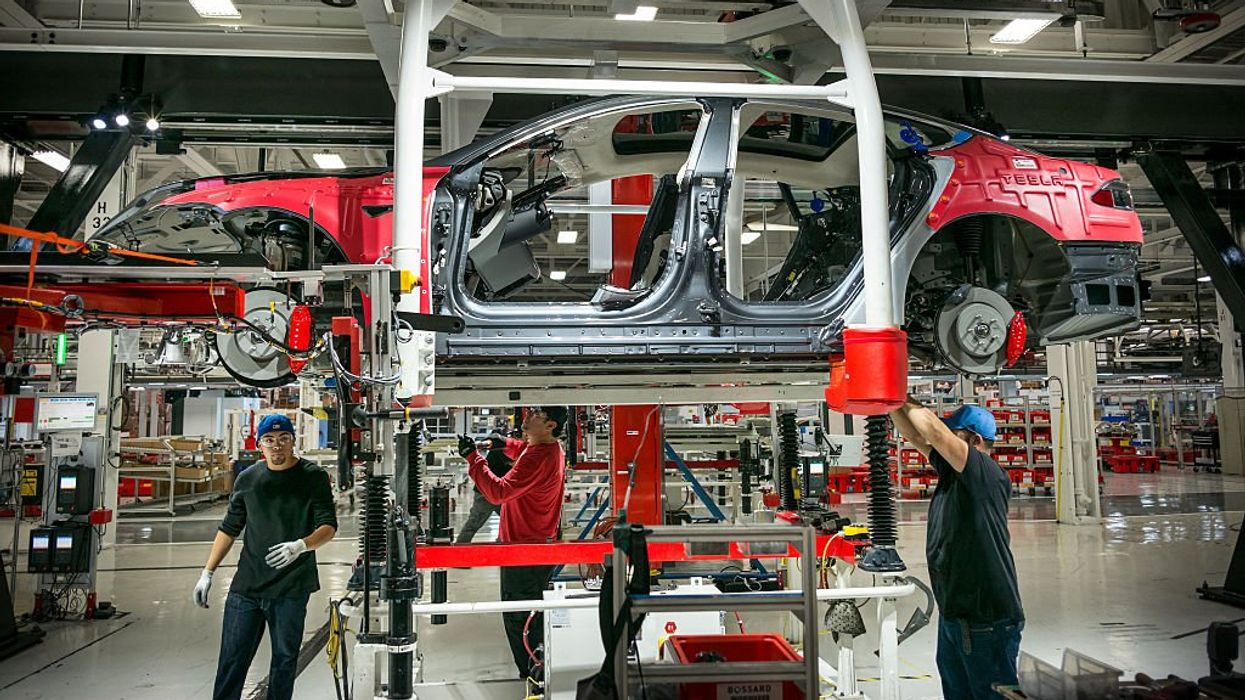
Photo by David Butow/Corbis via Getty Image

The Biden administration will roll back some of its requirements on emissions from exhaust pipes in what is being reported as a concession to unions and automakers.
The original plan, touted as an ambitious move to combat climate change, involved limiting tailpipe pollution that would have ensured 67% of new passenger vehicles in the United States would be emissions-free by 2032. Another 46% of new medium-duty trucks, which included delivery vans, would be all-electric or some form of zero-emissions, the New York Times reported in April 2023.
Heavy-duty vehicles, including 18-wheelers, were also required to be electric by 2032.
The Environmental Protection Agency used the Clean Air Act to tightly limit the amount of emissions a car manufacturer can produce in total with all of its cars. The limits were so strict that they would have required complete compliance from manufacturers to go fully emissions-free or face billions in fines.
An EPA official called the restrictions "the strongest-ever federal pollution technology standards for both cars and trucks."
A group of Republican attorneys general condemned the move, including Patrick Morrisey of West Virginia, who said that President Biden was "hell-bent on destroying America’s energy security and independence."
The EPA's plan under Biden is set to ease, however, reportedly giving manufacturers a slower timeline to boost their electric vehicle sales before 2030 but still requiring zero emissions by 2032.
According to anonymous sources, the finalized legislation is set to drop in early spring 2024.
Reports, including that of the Washington Times, alleged that automakers said more time was needed to build a national network of charging stations. As well, the unions wanted more time to try to unionize electric car plants that have started to open.
As of December 2023, the Biden administration had yet to power on a single electric vehicle charger despite receiving $7.5 billion in 2021 from Congress to build the stations across the country. Approximately $2 billion was already sent to different states, but less than half had started taking bids from contractors, meaning that construction was still in the distant future.
According to the Zero Emission Transportation Association, $30 billion will be needed in the next 10 years to provide home charging rebates and grants to state, local, and tribal governments.
In terms of EV manufacturing, many brands have announced a slow-down in production.
Ford recently announced it was cutting jobs for its production of electric F-150 Lightning trucks and transferring manpower to a different production facility to produce gas-powered vehicles.
Toyota was among many other manufacturers that said a push should be toward hybrid vehicles before electric. However, the manufacturer soon invested another $1 billion into production of an electric SUV.
Like Blaze News? Bypass the censors, sign up for our newsletters, and get stories like this direct to your inbox. Sign up here!
Andrew Chapados